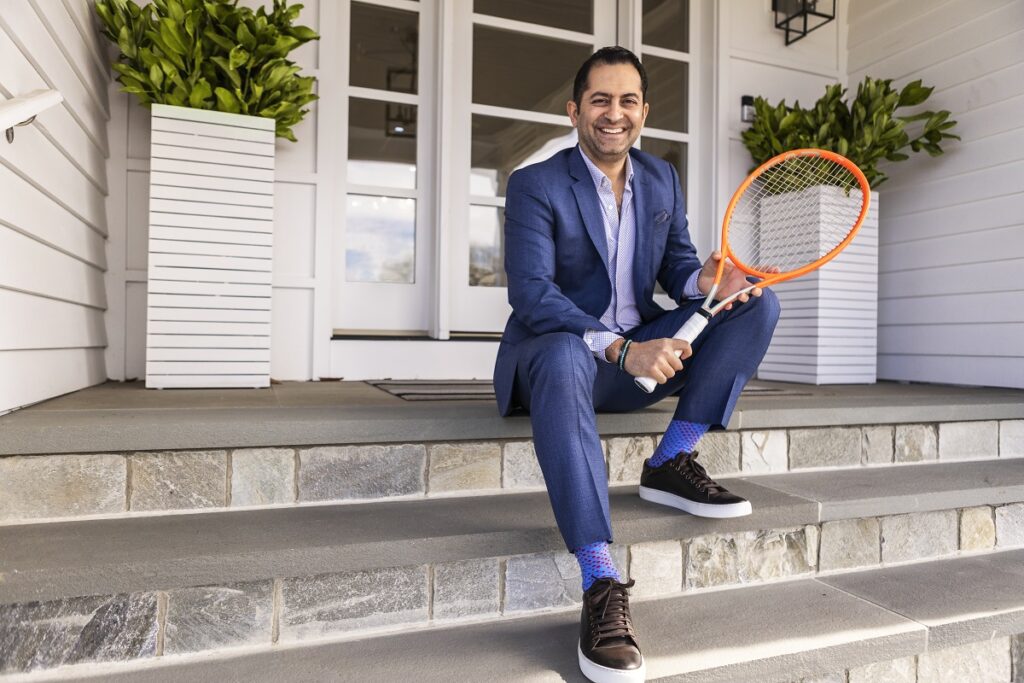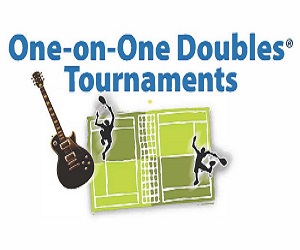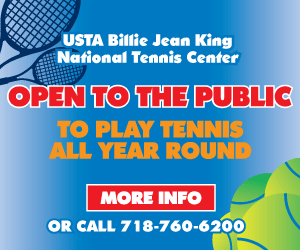Beyond the Baseline: Parsa Samii, Compass

Tennis and the real estate business; on the surface, these two things don’t have anything in common.
But if you look closely, the ways to be successful in both of these fields often overlap. It takes dedication, discipline and confidence, and at their cores, they both require focusing on the process rather than results.
A great example of these parallels is Parsa Samii. A native of Long Island, Samii was a top junior player growing up, playing at local clubs such as Glen Head Racquet Club, Port Washington Tennis Academy and Robbie Wagner Tournament Training Center before going on to have a successful college career at the University of Massachusetts-Amherst.
Samii would go on to compete on the pro tour in the years following college, but he began to get bit by the injury bug, which halted the professional tennis dream.
“I started to get injured quite a bit, but I was very determined to make the impossible, so to speak, happen,” he said. “I pushed myself to the limit, but my body started to fail, and continued to fail. After a couple of shoulder injuries and a surgery, I stopped playing pro tennis when I was about 25-years-old.”
That’s when Samii made the transition into coaching here on Long Island, something he would do for nearly two decades, coaching some of the top junior players including multiple national and international titlists. But in what was becoming all-too commonplace for Samii, he was injured again, this time hurting his elbow, leading him to make a difficult decision.
“This theme kept happening, and I felt like I needed to make a transition in my life. Tennis had taken me so far, and I felt like I could use what I had learned from it and apply it to something else. I approached real estate with the same mindset I did tennis.”
And now as a Licensed Real Estate Salesperson for Compass, a national real estate agency, Samii has used the skills and work ethic he developed as a tennis player and coach to succeed in the real estate business, an industry that is not only competitive, it requires hustle.
“A couple of weeks ago I was sitting in the office with my business partner, and at the time I didn’t think business was doing well so far this year,” Samii recalls. “But she then showed me the numbers, and I actually have been doing better this year than I did last year, and last year’s numbers had crushed previous years. In this type of job, at least for me, you grind so hard sometimes that you don’t always see the finished product. My stress level went down instantly. You do all this hustling and you don’t always know where you are going to land.”
That is something he learned and developed from his years as a tennis player. It is about the process and the work you are doing, and it is important to do those things without always worrying about the end result.
“Playing one point at a time is something you are taught in tennis, and I’ve adopted that mentality in my business,” he said. “Just like if a tactic were to change during a match, and you need to problem solve right there on the court, I do the same thing in business. Things change and you have to be able to think on your feet. Taking it moment by moment, and being able to look back and reflect on what you have done in the past that works. That is 100 percent a gift and skill that tennis gave me, and is applicable not only in my industry but across all businesses.”
Even beyond the mental approach to both tennis and the real estate business, the necessity of developing different skills and refining those skills is an integral aspect of both arenas.
As a former coach, Samii says he guided his students with the same advice that he uses in his currentbusiness practices.
“It’s all about improving every day, getting better at certain skills, and the proof of that is in the pudding,” explained Samii. “I think it’s a great lesson for kids. That was exactly how I coached, little by little. You work on your forehand, and when you get the technique down then it’s time to work on generating spin. Then after we have that down, let’s go into more details and develop your inside-out forehand and cross-court angle forehand. You try to master those shots, and then we can work on flattening the ball out in the middle of the court, and so on and so forth.
That takes time and a lot of repetition, but over time you will become a complete tennis player, and it’s that same methodical approach that makes you successful in business.”
Approaching the real estate market with that mindset is as important as ever, as every day we are bombarded with news about how dire things are throughout the world, whether it is the war in Ukraine or rising inflation. The ability to navigate through all the bad news that is out there is crucial for Samii and his team, and in doing so, he is able to view the landscape with more clarity.
“There is a lot of noise out there, and a lot of people are waiting for the bottom to fall out, and at times it sure seems like itwill eventually,” he said. “However, as someone who is the boots on the ground in real estate, I see it differently. We have historically low supply and there are more buyers than available inventory. The only thing that has really changed is price stabilization, which is good. People are scared of interest rates going up again, and that goes into the mindset of the buyer. But it’s important for potential customers to consult with experts in this area to reassure them that the bottom isn’t coming. With low supply and high demand, it is still a seller’s market, and I am confident that continues and the market continues to do well.”
It’s often said that tennis is the sport for a lifetime, which typically means that you can continue playing tennis at any age, no matter how old you get. But that mantra also means that the skills and techniques you learn and develop as a tennis player are the same ones that can allow you to be successful in different areas of life.
Samii is a living example of this, as he has taken what he learned as a tennis player and coach and used it to carve out his place in the Long Island real estate world. It’s a vital lesson for young players to understand that when you show up to practice, a training session or a match, that what you do on the court and the work you put in is not only so you can beat your opponent, but also so you develop habits that will translate to your life off the court.






